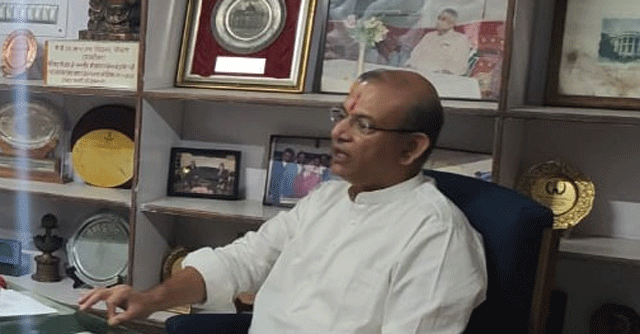
Dos and Don’ts can prevent Big Tech from tipping markets: Jayant Sinha


Competition watchdogs are globally embracing a new model of regulating tech giants by setting the “dos and don’ts” upfront rather than investigating their conduct after markets tip and India’s regulatory framework too should evolve in effectively dealing with anti-competitive practices in digital economy, said Jayant Sinha, Chairman of Parliamentary standing committee on finance.
The standing committee, which looked into the anti-competitive practices of Big Tech will be giving its report later this month to the Lok Sabha speaker, making a host of specific recommendations on how the regulatory framework for Big Tech should be revamped.
Sinha said in an interview that the regulatory trend worldwide is to adopt a set of ‘dos and don’t’s’ or what is called the ‘ex-ante’ approach to regulation seeking to pre-empt anti-competitive behaviour. This contrasts with the current ‘ex-post’ approach of investigating corporate conduct after a market has tipped. Market tipping is the phenomenon of a product or service with very high user adoption tipping the market in favour of the monopoly player and affecting consumer interest.

“The whole idea of ex-ante regulation is to ensure that even if you have a monopolistic outcome, by setting the rules upfront and saying that if indeed, you become the monopolistic ‘winner takes all’ entity, then you have to behave yourself competitively in certain ways. Whether it is use of data, acquisitions, pricing, self-preferencing, in all of these instances, the entity’s competitive behaviour should be fair and should enable high quality competition,” Sinha said.
“We cannot choke off competition and we cannot result in situations where suppliers or consumers have no choice. We have to protect choice as well as competition,” Sinha added.
Sinha’s case for the new approach to competition regulation is significant given tech firms have become the most valuable firms in the world and most of them have large user base in India.

A set of dos and don’t’s or code of conduct for the Big Tech is increasingly being seen as a regulatory imperative to protect consumer interest.
Sinha said that policy makers have to examine whether we should get a new law to deal with the anti-competitive behaviour of Big Tech or whether it should be through amendments to the competition law. “That still has to be evaluated. But I think there is no doubt that we will have to evolve our competition law framework,” Sinha said.
Sinha explained that the monopolistic outcomes in digital economy do not happen over ten or 20 years. “They happen within three to five years. Because of the behaviour of the digital markets, competition law has to evolve to think very differently about ensuring fairness and contestability in a digital market,” Sinha said.

He said that in the case of digital markets, quick regulatory action was of essence.
“Now if you do not act quickly enough, the market will very quickly tip to a monopolistic outcome. Therefore, the role of the competition regulator also changes. Instead of an ex-post role, competition regulators also have to start to very carefully understanding what is happening ex-ante. That is before the market has tipped, not after the market has tipped,” Sinha said.
He explained that if one market tips, then an entity can use its advantages in one market to strengthen its advantages in other markets. “For example, the success in social media can make a player very quickly successful in a digital communication platform and really start to become a major player in that market. You have all these markets falling like dominos, if you will, with a very strong player in one market resorting to what called ‘bundling’ and ‘tying’ (of services) to become the leader in the other market,” said Sinha.

“I think it is vitally important for India’s digital ecosystem to have a sophisticated and forward-looking competition law that is fair to all stake holders and these include the global Big Tech players, India’s very successful unicorns operating in digital markets, newer start-ups that are coming up, and of course suppliers and consumers that are very impacted by development of these digital platforms,” said Sinha.
He added that it was very important for India’s continued growth in the digital ecosystem. “We want India to be number one as far as digital economy is concerned and for the digital economy to flourish, India needs the best competition law. That is what we are working towards,” said Sinha.
